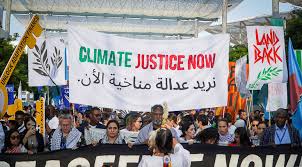* To Halt Gas Supply To GENCOS Over N2trillion Debt
The Nigerian Midstream and Downstream Petroleum Regulatory Authority (NMDPRA) has announced plans to reassess the 0.5% levy associated with the Midstream Downstream Gas Infrastructure Fund (MDGIF) to ensure compliance with the Petroleum Industry Act (PIA).
The PIA, enacted in August 2021, introduced wholesale supply operation licences, as outlined in Sections 142 and 197. These licences are now mandatory for entities engaged in domestic sales or exports of natural gas and petroleum liquids, reflecting a major shift from the Petroleum Act of 1969, which primarily focused on production and exports.
This was disclosed during a stakeholder sensitisation workshop held in on Monday in Lagos, aimed at clarifying and enhancing the implementation of regulations governing wholesale supply operations for natural gas and petroleum liquids in Nigeria.
The Authority Chief Executive, Farouk Ahmed, represented by the NMDPRA Secretary and Legal Adviser, Dr. Joseph Tolorunse, highlighted the significance of aligning the levy with the provisions of the PIA. Ahmed explained that the transition under the PIA not only strengthens domestic energy security but also enhances Nigeria’s potential for international energy exports.
“This transition provides a clear regulatory framework for entities involved in the sale and delivery of natural gas and petroleum liquids. It bolsters domestic energy security while creating opportunities for Nigeria in the global energy market,” Ahmed stated.
He encouraged stakeholders to voice their concerns about the implementation process, emphasizing the importance of collaboration and alignment. “The workshop underscores the significant benefits of wholesale supply operations, including increased investment opportunities, improved transparency in hydrocarbon measurement, and equitable trading practices. These changes are anticipated to create a more competitive market and solidify Nigeria’s position in the global energy sector,” Ahmed added.
Despite the optimistic outlook, stakeholders raised concerns about the implementation of the 0.5% levy mandated by the PIA. Many highlighted the need for clearer guidelines on the responsibility for collecting and remitting the levy.
Lanre Daramola from Aradel Energy described the engagement as a positive step but pointed out gaps in the legislation. “The PIA does not specify who is responsible for collecting the levies. There is a need for mutual understanding between the authorities and the industry to address this issue,” Daramola said.
Similarly, Emmanuel Cofie-Spiff from Oando Energy noted the diverse views shared during the workshop, particularly on wholesale gas operations and the 0.5% levy. “While many concerns have been raised, there is optimism that this stakeholders’ meeting will pave the way for regulations that benefit both operators and the government,” Cofie-Spiff explained.
He noted that while stakeholders do not oppose the PIA, they seek clarity on its implementation; adding that the NMDPRA had suggested industry operators collect and remit the levy since they produce and sell the gas. However, many international oil companies (IOCs) have expressed reluctance, citing the need for further clarification on this responsibility.
“As discussions progress, stakeholders remain hopeful for a consensus that will facilitate the effective implementation of the PIA regulations, fostering a favourable business environment for both the government and industry operators,” Cofie-Spiff added.
The issue of Gas Supply debt was highlighted by Cofie-Spiff, who reported that only 28 per cent of the cost of total gas supplied to off-takers had been received. He said this had placed considerable financial strain on the company, while the Authority had not adequately supported producers’ demands for payment.
Ahmed, however, dismissed this claim, stating that upon receiving complaints, the Authority directed the affected companies to stop supplying gas until payment was received.
Disclosing the federal government and some GenCos currently owe over N2 trillion in legacy debts to gas producers in Nigeria, the Authority stated that the substantial debts owed to producers had hindered their ability to sustain operations. It called on gas off-takers, particularly power generation companies, to ensure timely payment for the gas supplied.
Ahmed further highlighted the PIA’s potential to foster investment across the petroleum value chain, enhance transparency, enforce domestic supply obligations, and ensure fair market practices. “This new regulatory framework enables willing-buyer-willing-seller transactions for Nigeria’s hydrocarbon resources, creating a foundation for sustainable growth in the energy sector,” he said.
While unresolved issues persist, particularly regarding the implementation of the levy, the NMDPRA, according to Ahmed, remains committed to addressing stakeholder concerns and ensuring the effective implementation of the PIA. Stakeholders and regulators alike are optimistic that ongoing dialogue will lead to a balanced resolution that supports both the government and industry operators, paving the way for a more competitive and transparent energy sector.
The workshop also served as a platform for open dialogue on critical issues, with Ahmed urging participants to work closely with the authority to optimize midstream and downstream operations and stimulate infrastructure development. He stressed that stakeholder contributions are crucial for the growth of Nigeria’s energy sector, noting that this proactive approach is essential for both the national economy and Nigeria’s role in the global energy market.
The workshop attracted over 70 participants from various sectors of the oil and gas industry, showcasing the significance of these discussions. The PIA, enacted in August 2021, introduced wholesale supply operation licences, as outlined in Sections 142 and 197. These licences are now mandatory for entities engaged in domestic sales or exports of natural gas and petroleum liquids, reflecting a major shift from the Petroleum Act of 1969, which primarily focused on production and exports.








What i do not realize is in truth how you’re now not actually much more well-liked than you might be now. You are so intelligent. You already know therefore significantly in the case of this topic, made me for my part consider it from so many numerous angles. Its like men and women aren’t interested until it¦s something to accomplish with Lady gaga! Your individual stuffs excellent. Always take care of it up!
Excellent read, I just passed this onto a colleague who was doing some research on that. And he just bought me lunch because I found it for him smile Thus let me rephrase that: Thanks for lunch! “A human being has a natural desire to have more of a good thing than he needs.” by Mark Twain.
It is actually a nice and helpful piece of information. I am satisfied that you just shared this helpful info with us. Please keep us informed like this. Thanks for sharing.
Pretty nice post. I just stumbled upon your weblog and wanted to say that I’ve truly enjoyed browsing your blog posts. In any case I will be subscribing to your rss feed and I hope you write again very soon!
Pretty nice post. I just stumbled upon your blog and wanted to say that I have really enjoyed surfing around your blog posts. In any case I’ll be subscribing to your rss feed and I hope you write again soon!
Hello my family member! I want to say that this article is awesome, great written and include approximately all important infos. I would like to look extra posts like this .
I very happy to find this website on bing, just what I was looking for : D too saved to favorites.